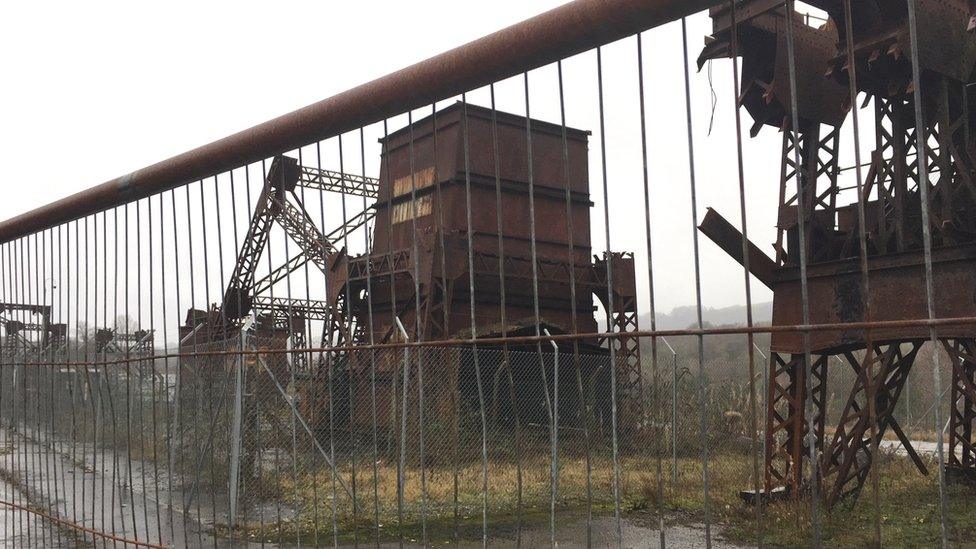Cefn Coed mining museum in Neath promised ôÈ250,000 boost
- Published

The dismantled winding gear makes the museum look closed, councillors have said
A mining museum that was branded a "dump" is to get a ôÈ250,000 boost from the local council to help turn it into a major tourist attraction.
Cefn Coed Colliery near Neath - once the world's deepest anthracite coal mine - opened as a museum in 1978.
But one councillor said it has always looked closed since its winding gear was dismantled and left to rust.
Neath Port Talbot Council leader Rob Jones said the authority valued the mine's legacy and would invest in it.
The Welsh Government - which owns the site and leases it to the council - dismantled the listed 1930s structures in 2016 over safety concerns.
Peter Rees, Neath Port Talbot's cabinet member for culture, told a recent council meeting the Welsh Government ought to clean the site up.
"There's a lot of metal on the ground and it's just a dump," he said.
Museum manager Keith Davies and local councillor Sian Harris hope there are better days ahead for the attraction
Crynant ward councillor Sian Harris said in January the colliery always looked as though it was shut, as the winding gear had been left "in half and rusty".
"We need the winding gear up so we can crack on with plans for the museum's future," she said.
Now, the colliery has been promised funding as part of the council's capital programme for 2019/20, according to the Local Democracy Reporting Service.
Mr Jones said: "We do appreciate its strategic value as a tourist destination and weô have committed to invest in that area.
"We don't spend ôÈ250,000 lightly - this shows we are committed to the development of Cefn Coed."
The authority hopes the Welsh Government will also contribute towards a ôÈ1m investment plan to turn the museum into a "gateway" destination for tourism.
However, the council is cutting its annual subsidy towards the museum's running costs from ôÈ50,000 to ôÈ45,000.
Trade union leaders have claimed that cuts could put the museum at risk of closure.
The Welsh Government said it was in the process of procuring a suitably qualified contractor to undertake the restoration, and anticipated the work would get under way in March.
- Published28 January 2016
- Published31 October 2014
- Published29 April 2013
- Published23 June 2012